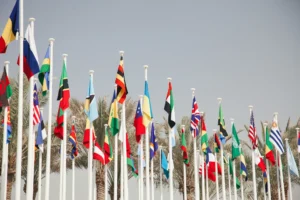Kenya stands at a pivotal moment, brimming with potential and a demographic advantage that could redefine its future: Generation Z. Born between the late 1990s and early 2010s, this cohort is not just the largest generation globally, but in Kenya, they are emerging as a formidable force, already demonstrating their capacity to drive significant change. Far from being apathetic, Kenya’s Gen Z is tech-savvy, socially conscious and fiercely passionate about shaping a better tomorrow. The question isn’t if they will impact development, but how Kenya can strategically harness their immense energy.
The Digital Vanguard: From Tweets to Transformation
One of the most defining characteristics of Gen Z is their inherent digital fluency. They are true digital natives, having grown up with the internet, social media and mobile technology as extensions of their lives. This isn’t just about entertainment; it’s a powerful tool for information, organization, and advocacy. We’ve witnessed this firsthand with recent youth-led movements, where digital platforms became the primary arenas for discourse, mobilization and holding power accountable.
This digital prowess is a goldmine for Kenya’s development. Imagine channeling this energy into building a robust digital economy. By investing in advanced digital literacy programs, coding bootcamps and innovation hubs, we can empower Gen Z to become the architects of new tech solutions, digital content creators, and e-commerce entrepreneurs. Their comfort with AI and automation means they are uniquely positioned to drive efficiency and innovation across various sectors, from agriculture to healthcare. The goal is to move beyond mere consumption of technology to active creation and economic participation.
Social Consciousness: A Catalyst for Change
Beyond their screens, Kenyan Gen Z possesses a deep-seated social consciousness. They are acutely aware of the challenges facing their communities and the nation – from climate change and environmental degradation to corruption and social inequality. This generation isn’t afraid to speak up, demand transparency and advocate for justice. Their values often prioritize purpose, social responsibility and inclusivity.
This inherent drive for positive change can be a powerful catalyst for sustainable development. By creating platforms for meaningful civic engagement, we can channel their passion into tangible community development initiatives. Think youth-led environmental conservation projects, advocacy for improved public services, or campaigns promoting health and education. Empowering them with resources and a voice in policy-making, especially on issues they care about, will not only address pressing societal needs but also foster a stronger sense of ownership and national pride among the youth.
The Entrepreneurial Spark: Building Beyond Traditional Paths
The traditional career path holds less allure for many in Gen Z. They are often characterized by an entrepreneurial spirit, a desire for autonomy and a willingness to explore diverse income streams, including the gig economy and side hustles. This isn’t just about individual ambition; it’s a reflection of a generation seeking to create their own opportunities in a challenging economic landscape.
Kenya can capitalize on this by significantly bolstering its youth entrepreneurship ecosystem. This means providing accessible seed funding, practical business training and mentorship programs tailored to their innovative ideas. Initiatives like the Kenya Youth Employment and Opportunities Project (KYEOP) are crucial, offering training, business support and grants. By simplifying regulations for small businesses and fostering a culture that celebrates innovation, we can empower Gen Z to build enterprises that not only create jobs for themselves but also for their peers, contributing significantly to economic growth and diversification.
Bridging Gaps and Fostering Inclusion
To truly unleash Gen Z’s potential, we must address existing gaps. This includes ensuring that the education system is aligned with the demands of the modern workforce, equipping them with both technical and soft skills like critical thinking, problem-solving, and adaptability. Mentorship programs, connecting experienced professionals with young talent, can provide invaluable guidance and open doors.
Crucially, creating an inclusive environment means actively listening to Gen Z. Their perspectives on work-life balance, mental health, and leadership styles are reshaping workplace norms. Organizations and government bodies must adapt, fostering collaborative environments where their voices are heard, their contributions are valued and their well-being is prioritized. This means moving away from hierarchical structures towards more empathetic and transparent leadership.
The Time is Now
Kenya’s Gen Z is not waiting for permission to make a difference; they are already doing it. They represent a vibrant, resourceful, and globally connected generation ready to lead. By strategically investing in their digital capabilities, nurturing their social consciousness, fueling their entrepreneurial drive, and creating an inclusive environment, Kenya can unlock a powerful engine for sustainable, youth-driven development. The future isn’t just coming; it’s being built by Kenya’s Gen Z, and it’s time for all stakeholders to champion their potential.



